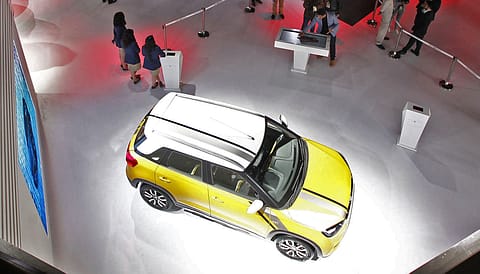Indians want to return to buying cars at dealerships: JD Power
The study suggests that 68% of car buyers in India who responded to the survey said they would want to go through the entire journey of buying a car in-person

The pandemic may have shoved lives of consumers more and more inwards, in some cases overnight, but some aspects of existing consumer behaviour remain unabated. According to a study done by JD Power, titled “2021 India Sales Satisfaction Study”, a strong inclination towards physical visits to showrooms for vehicle purchase remains, despite the fact that more than 85% of shoppers are going online to do their vehicle research.
The study suggests that car buyers in India are looking forward to heading back to the showrooms for their next vehicle purchase. “68% of the survey respondents said they would want to go through the entire journey in-person and only 20% saying they would want a complete online experience,” the study reads. “The critical issue to address here is the divergence of the preference,” says Sandeep Pande, lead of the automotive practice India at NielsenIQ. “Essentially, customers are thinking at two levels. Firstly, the readiness of the dealers to seamlessly transition from one mode to another and, secondly, the robustness of the technology integration to handle high-value purchases,” he adds.
As the pandemic continues its fluctuating waves, a transition from online to offline by dealerships is likely to make customers strike a balance between the two modes of purchase. “At the end of the day, all the customers want is whether dealerships are able to anticipate their needs and fulfill them accordingly.” Pande adds.
Despite the inroads made by digitisation in the pandemic, offline sources, such as peer recommendation and test driving a vehicle, remain strong sources of information about the new-vehicle selection process, the study posits. Notwithstanding, gleaning through information available online remains a key aspect in the journey to purchase a new vehicle for the Indian consumer. “48% of survey respondents said they watched YouTube videos or used search engines to gather information online. More than one-third (35%) said they reviewed social media advertisements as an online information source,” the study adds.
Some of the other findings of the study was the fact that car buyers expect a prompt response when they make an online request to be contacted back. “Currently, dealerships take an average of seven days to respond, whereas the customer expectation averages five days. In addition, about 11% of shoppers said that they did not hear from their dealer following an online request,” the study reads. It also finds that recommendation from peers or family (61%) remains the leading driver for dealer choice, followed by dealership location (54%) and immediate delivery (49%).
“These findings show that car-buying in India is an emotional, image-building exercise, and normally for an Indian family, buying a car is an epochal moment which only happens 3-4 times in a lifetime. As people are moving on from the pandemic, they want to come to dealerships for this purchase,” Vinkesh Gulati, President, FADA tells Fortune India.
He explains that the advantages of visiting a dealership — test driving a vehicle; feeling the touch of the car’s interior, are things which cannot be replaced by a virtual model. “For instance, a customer drove the car, and complained that the gear-knob feels uncomfortable in his grip, and got another car. This is something which has no alternative — digital, virtual or otherwise,” he adds. He believes that the digital measures adopted during the pandemic were additional, stopgap measures taken in the wake of the pandemic. “For buying a vehicle, say a customer visited the dealership 10 times. In the pandemic, these visits were reduced to 2-3 times, as the customer used the facilities available online to check the features, specifications, models, but visits still remained. Even if they couldn’t come to the dealership, rather the dealership came to them,” he tells.